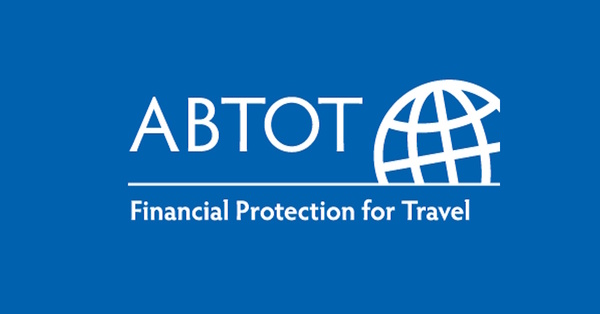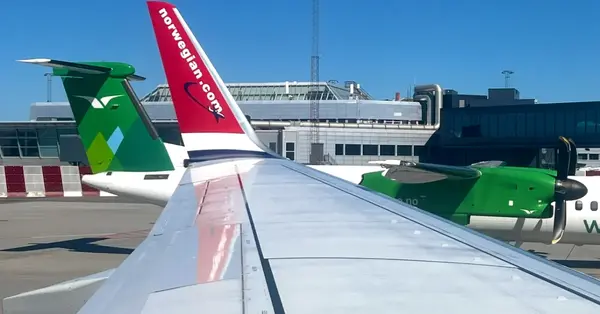You are viewing 1 of your 2 free articles
Comment: Atol reform requires a holistic approach
The government has missed a huge opportunity to take a holistic approach to financial protection with the CAA’s Atol reform. Why make no reference to the Airline Solvency Review? One thing the travel industry agrees on is that consumer protection should encompass airlines.
If considering segregation of client monies, it’s common sense to ensure all holidaymakers’ monies are segregated until a holiday is taken. The reform of the Atol scheme needs to go hand in hand with addressing airline insolvency and ensuring protection applies to pipeline funds held by travel agents.
Yet the CAA’s ‘request for information’ on Atol reform reveals this is unlikely to happen. Instead, the segregation of client monies is set to have a significant and disproportionate impact on tour organisers while no action will be taken against airlines because they are overseen by a different government department. It’s as if the left hand refuses to know what the right hand is doing.
The CAA states it “recognises the importance of consistency across the travel ecosystem”. This is clearly not the case – solely tour operators are being targeted.
Case for a holistic approach
The Atol scheme was implemented in 1973 with consumer protection provided by bonds. A back-up fund was created in 1975 by a £15 million government loan and later by a 1%, then 2%, levy on holidays. The scheme was reformed in 2008 and had to be amended on five separate occasions before the failure of Thomas Cook cost the fund over £400 million in 2019.
Change is undoubtedly needed, but a holistic approach is the only sensible and fair way forward.
Flights can amount to 45% of the cost of a holiday, so clearly if the segregation of customers’ monies is going to work, airlines must be subject to the same requirement to hold money as tour operators.
Airlines require payment up front from consumers for flight seats without offering any protection and the government is unable to enforce the seven-day rule for processing refunds when flights are cancelled.
Furthermore, protection of customer monies must run throughout the customer-booking funnel and include travel agents. There is little point in placing the sole regulatory focus on travel organisers if airlines or agents are not also forced to segregate consumer funds.
For many years, agents have used pipeline monies to cover working capital requirements. The most-stark example of this was the practice promulgated by Thomas Cook retail management of having shops offer 5% reductions for full pre-payments well in advance of due dates and not passing this money on to tour operators.
Tour organisers have little control over agents using consumer pipeline monies to run their businesses and certainly no ability to defer payments to airlines.
Options for segregating monies
The segregation of consumer funds is the CAA’s preferred option. It has implemented measures in this area well in advance of the outcome of this reform.
There are currently two CAA-approved structures – a CAA Approved Trust Account and a CAA Escrow Account – which allow the release of funds for certain types of suppliers or advance payments up to a certain percentage.
Two further options in the latest CAA update are of interest. First, trust segregation, whereby monies can be released to cover the value of all holiday supplier payments (a regulatory structure used in other parts of the world). It is unclear how workable this would be, but this option should be explored. It would ensure customer monies are only used prior to travel to pay for the travel services they have purchased.
Second, the ‘client account’ approach – an arrangement overseen by a designated company director and not a professional trustee and validated by an Atol-Reporting Accountant (ARA). This looks a regressive step as, prior to the 2018 Package Travel Regulations, the operation of trust accounts did not require a professional trustee.
All CAA trust and escrow accounts currently have a clause requiring ARA reporting which is not being implemented as the CAA has not agreed terms of reference with the Institute of Chartered Accountants in England and Wales (ICAEW).
The CAA request for information remains silent on whether this option would see the designated director incur personal liability exposure, as with the CAA’s current overtrading guarantees for new Atol holders, and it does not explore the ARA’s liability exposure. However, it makes sense to leave oversight of such arrangements to professional trustees.
Small businesses need a voice
The latest proposals suggest smaller businesses may have to join an accredited body or franchise to avoid being disproportionately impacted by Atol reform.
The concern is that not all small businesses will be able to afford the requirements of an accredited body or franchise, so this will likely be unpopular. It is extremely important that small businesses maintain a voice in the industry.
The failures of XL Group, Monarch and Thomas Cook show integrated groups pose a disproportionate risk to the Air Travel Trust Fund. These failures have far outstripped all other calls on the fund in recent history and arguably call for closer attention to be paid to how the risks posed by integrated groups are managed.
A risk-based Atol Protection Charge (APC) seems a logical approach if applied to the cost of a holiday. However, a charge based on the degree of financial security in place could lead consumers to see which companies the CAA considers to be riskier options, possibly deterring holidaymakers from booking with them.


















